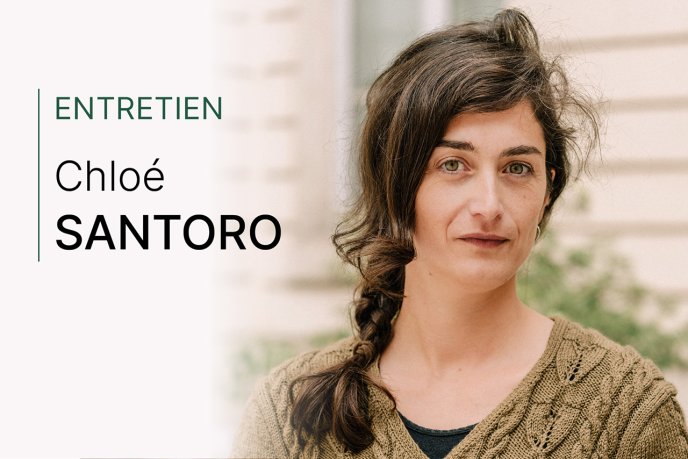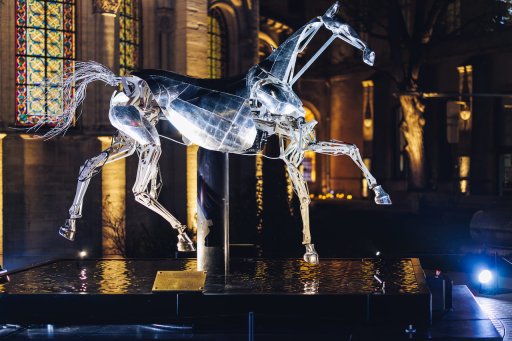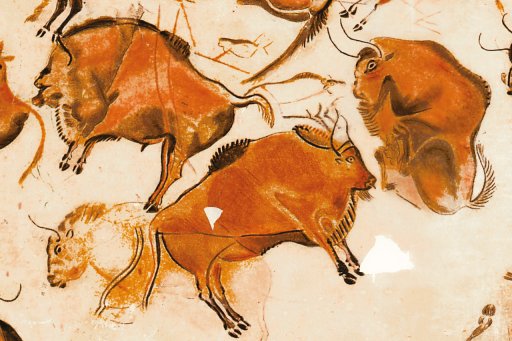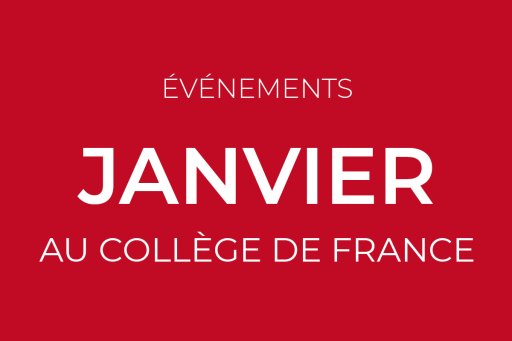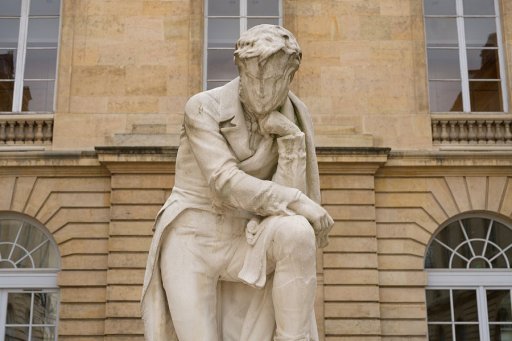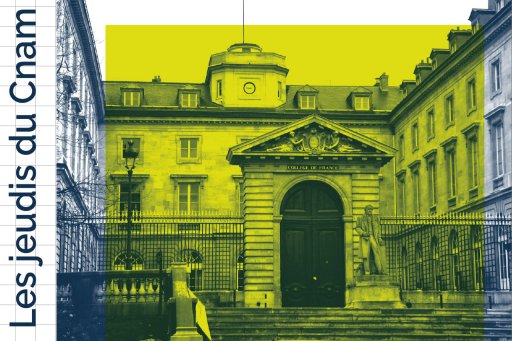Can citizens make important decisions without systematically resorting to political representatives ? Using the example of Athenian democracy, philosopher Chloé Santoro outlines a democratic system based on active, deliberative citizenship. She describes an institutional architecture capable of producing collective intelligence, not only in decision-making processes, but also in social practices and the formation of critical judgment.
Chloé Santoro, researcher at the Deliberation Chair of the Hannah Arendt Interdisciplinary Laboratory for the Study of Politics (LIPHA) at the University of Paris-Est-Créteil, and associate researcher at the Logiques de l'agir laboratory in Besançon, is the 2025 winner of the Collège de France Award for Young Researchers.
She will give a lecture entitled " Athens : democracy as an institution of collective intelligence " at the Collège de France, on December 10 2025 at 6 pm .
You say that our democracies are facing a paradox. Why ?
Chloé Santoro : In our representative regimes, the people are sovereign, but paradoxically they only exercise their sovereignty by appointing a representative to decide for them. In my view, this paradoxical conception of democracy partly explains the profound crisis of legitimacy we are witnessing today. Aspirations for more integrated and authentic forms of democracy are strong, yet, with the exception of Switzerland, voters are consulted very little in our current systems. They are only involved in minor decisions. Two arguments, rarely questioned, are used to justify this : on the one hand, ordinary citizens are deemed incompetent to govern, and on the other, large numbers are seen as a handicap. However, there is a precedent where these two presuppositions have been disproved : ancient Athenian democracy.
I became interested in Athens because I wanted to understand whether it was possible for ordinary citizens to make important decisions without relying on political representatives. My main questions concerned collective intelligence : what is it ? Does it really exist ? How is it built, with what social practices and institutions ? What I was interested in understanding was the " epistemic model " of Athenian democracy, i.e. how, in Athens, citizens' knowledge, skills and abilities were organized and used to participate in political life.
What conclusions do you draw from your work ?
One of the first findings of this work is the strangeness of the Athenian regime in relation to our frameworks of political thought and practice. For example, in Athens, decisions were taken according to a logic that is counter-intuitive to our representative regimes : the more important a decision was, the more people the Athenians felt were needed to make it. This correlation between the seriousness of a decision and the number of decision-makers is, in my view, the essence of a " radical " vision of democracy.
In my work, I'm trying to lay the groundwork for what I call radical democracy, which I see as opposed to representative democracy. While radical democracy already exists as a concept, I disagree with the way it has been thought of as a natural type of organization. On the contrary, Athens shows us that popular sovereignty doesn't just need to be expressed. It has to be built up, over time, through rather complex institutions. I am therefore developing an original concept of radical democracy, centered on the question of learning.
In your opinion, this choice was also motivated by the fact that the philosophical sources available to us today are biased..
Although I am a philosopher by training, I have relied very little on philosophical theories of democracy, for several reasons. First of all, historiography has come a long way in recent years. Certain theories of democracy, which I would describe as " elitist ", have lost ground thanks to advances in this discipline. For example, the declinist reading of Athenian participation from the second democratic period onwards, which prevailed as recently as thirty years ago, no longer holds sway with historians today. Political theory has not yet fully integrated these developments. This was one of the aims of my dissertation : to ensure that the mixture of radicalism and pragmatism that characterizes this regime is both better understood and taken more seriously.
What's more, some philosophical texts have been relatively better preserved than other sources. I'm thinking in particular of texts such as those by Plato and Aristotle, with which our philosophical theories are imbued. However, from a historical point of view, the vision conveyed by these classic texts is out of sync. Plato, for example, defends an elitist model, according to which those who make political decisions must be carefully chosen for their personal characteristics and have solid skills to govern. Paradoxically, however, this model is much more compatible with the technocratic ideology underpinning our contemporary representative institutions than with the dominant ideology and institutions of his time.
In concrete terms, how did the Athenians govern ?
On the one hand, they relied on the votes of thousands of citizens present at the Assembly, rather than on a representative, to make decisions of political importance. On the other hand, Athenian government relied heavily on the drawing of lots by ordinary citizens, thousands of whom devoted themselves each year to their city, preparing Assembly sessions or judging trials, compared to just a hundred or so elected officials. Drawing lots is a method of selection that we are beginning to experiment with again today, but one that is still marginalized in decision-making circles, even though it is a way of fostering not only a certain social diversity, but also cognitive diversity. In Athens, lots were drawn according to the Clisthenian system, i.e., a rather complex distribution of the population into " tribes ", within which citizens from different types of territory were mixed. It's a peculiarity that remains largely unknown to the general public today, even though it played a fundamental role in ensuring a constant mixing of the civic population and establishing bonds of trust that transcended social affiliations.
You immersed yourself in the Citizens' Convention for the End of Life. Why ?
Ancient Athenian society is very different from our own, and our sources are patchy. Although historiography has made great strides in our understanding of political institutions, there are still many grey areas as to how Athenian democracy was organized on a day-to-day basis, due to the lack of exhaustive descriptions in ancient texts. For example, we have limited information on how deliberations were conducted, or on the meaning of certain reforms.
So I had to be able to confront some of my hypotheses with an assembly in progress, to think by analogy. The Citizens' Convention on the End of Life (CCFV), which brought together one hundred and eighty-four ordinary French citizens over nine weekends, between 2022 and 2023, to deliberate on the subject of the legal framework for the end of life, lent itself to this observation. As in Athens, citizens were selected by lot to take part in the experiment. I wanted to understand how this differed from other modes of selection. I was also interested in how the mechanisms of sociability influence individuals during deliberations and voting. My immersion in the CCFV enabled me to observe how relationships were built up between voters, and how they gave or withdrew their trust in one another. This affective dimension of the way we make democracy, or, to put it more simply, the way collective intelligence is built from the heart, is what was eluding me about Athens... I needed to take a much closer look.
How does one ultimately become an enlightened and autonomous citizen ?
I'd say that the real question of democracy is that of collective autonomy, and that it can't be improvised. Sociability is essential, and it takes time to build it. A group is built by sharing common times, whether it's through meals, laughter, etc. These times contribute to the quality of the debate. These times contribute to the quality of democratic debate. This means that we need to consider not only deliberation, but also informal time to allow collective reflection to take shape. Individually, this also requires practice. Although Athenian citizens could be chosen by lot, they had many other opportunities to coordinate and exercise their critical judgment through collective events. In this respect, they were much better trained than we are.
What I mean by "training" is the opportunity to exercise one's critical judgment as a citizen in a wide range of everyday activities. In Athens, for example, citizens were paid to go to the theater. This activity was considered part of citizenship - - and I think it's important to understand what this implies. Of course, it could be argued that the Athenians had more time for such activities than we do, since although most of them worked, they also usually had slaves who could take care of the daily chores. However, I believe that citizen participation in a democracy is not a luxury, and the fact that it was remunerated in Athens, including in its " " festive forms, shows this.
In your opinion, how can we avoid the pitfalls we've seen so far ?
Participating in public decision-making takes time and investment. In the case of the Citizens' Convention on the End of Life, for example, participants had to form an opinion on the current practice of deep and continuous sedation until death. Some were keen to organize their own visits to hospitals and intensive care units, so that they could see for themselves what this meant in practice. I'd say it's sometimes difficult to think abstractly about certain issues. To understand an issue like the end of life, you have to be able to imagine the impact it will have on families, something that's very intimate. Training, on the other hand, can help you gain experience and share it with others, so that the group gradually develops its discernment.
Of course, collective decision-making is not always possible, especially in emergencies. The citizens of classical Athens were also aware of this, and it was possible that certain military strategists or diplomats had to decide in the absence of consultation. However, their actions were closely scrutinized, and they were accountable for decisions taken autonomously. And that's the right line of reasoning, in my opinion. We need to recognize that any form of delegation in a democracy is a poor second-best.
Interview by Emmanuelle Picaud

